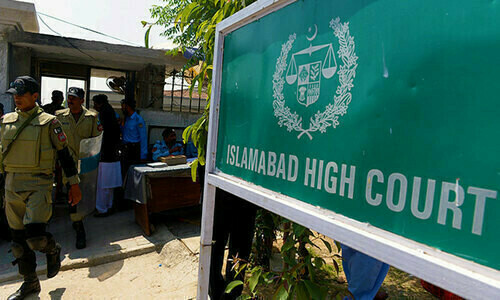 LONDON, Nov 29: The two main groups at the Bonn conference on Afghanistan hinted on Thursday they were close to an agreement on the formation an interim government, but said the key issue of a multinational security force remained unresolved.
LONDON, Nov 29: The two main groups at the Bonn conference on Afghanistan hinted on Thursday they were close to an agreement on the formation an interim government, but said the key issue of a multinational security force remained unresolved.
The two groups are the Northern Alliance and representatives of the Rome-based former king Mohammed Zahir Shah.
Sources close to the conference told Dawn that the delegates, though under a lot of international pressure to thrash out a comprehensive agreement, may not resolve the question of a security force at the conference.
Governments having influence with Afghan factions have explained to them in plain language that the future of any interim government in Kabul would depend on the deployment of neutral security forces.
But the Northern Alliance is against the idea of a multinational force.
Mr Younus Qanooni, the head of the Northern Alliance delegation, acknowledges the importance of security for the survival of any future administration, but says that the force should consist of soldiers from different Afghan ethnic groups.
But the UN - and the other three Afghan factions taking part in the talks - want all parties to agree on an international “stabilization force”.
The sources say Mr Qanooni has hinted that the Northern Alliance may oppose the deployment of a multinational force to provide security and stability for an interim government.
The chief UN negotiator, Lakhdar Brahimi, favours a transitional force, to be followed by a larger force.
Evidently Mr Brahimi has told the parties there will be no international aid and reconstruction money unless the Afghans accept a peacekeeping force.
This would mean a force led by Britain and France - up to 4,000 troops from each country - establishing peace on the streets of the main cities.
Britain has hinted that it would commit two or three battalions. The British would go to Kabul while the French would deploy in Mazar-i-Sharif.
AGENCIES ADD: The four groups at the conference, dominated by the Northern Alliance and representatives of the Rome-based former king Mohammed Zahir Shah, were locked in talks on setting up a parliamentary-style supreme council and a cabinet-style interim authority.
A royal delegate, Khaliq Fazal, informed newsmen a list of names to form a 120-200 member supreme council was nearing finalization.
“A committee, assigned for this purpose, is currently working on this,” he said by telephone from the Petersberg, a secluded hill-top German government residence, where the talks are taking place.
He said naming a smaller, 15-20 member interim authority — which means sharing out key portfolios such as defence and interior, as well as naming a head — had yet to be resolved.
The two institutions are part of a UN blueprint for Afghanistan’s future, designed to pave the way for a Loya Jirga, or traditional “grand assembly” of tribal elders, to be held in March or April next year.
The Loya Jirga would in turn lay the groundwork for a broad-based government and possible elections.
In a further sign that bridges were being built between the main players, Qanooni also described the ex-king, widely seen as a unifying force and key to winning over the Pakhtoons, as “a prominent national figure”.
“He can play an important role in ensuring national unity and political integrity in the country,” said Qanooni, who has in the past appeared cool towards a figure who has stayed out of the country since his ouster in 1973.
SECURITY: On the other key agenda item — how security is to be maintained — Qanooni saw an opening, stressing the Alliance’s willingness to accept a multinational force once an interim government is in place.
“Our official position is that once there is a transitional mechanism for Afghanistan, if that involves or necessitates the presence of an international peacekeeping force, then we will go with this, we will not oppose it,” he said.











































Dear visitor, the comments section is undergoing an overhaul and will return soon.